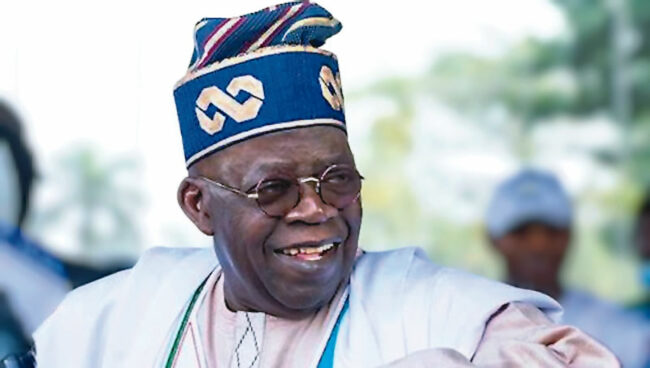President Bola Tinubu on Wednesday underscored the importance of collaboration between the Executive and Legislative arms of government in the bid to deliver the dividends of democracy and good governance.
President Tinubu stated this while delivering a keynote address at the opening of a 3-day ‘House Open Week’ with the theme: ‘Improving inclusion through Citizens engagement’ organized by the leadership of the House of Representatives.
Mr. President who was represented by the Secretary to the Government of the Federation (SGF), Senator George Akume observed that the choice of the theme on improving inclusion through citizens’ engagement was “apt, timely and vital because it underscores the importance of no doubt the need of Executive and Legislative collaboration.
“But also the significance of effective oversight for greater accountability to all Nigerians that elected us into office in different capacities.
“Our gathering here today, I must say, is happening at a critical point of our nation’s journey, journey to greatness.
“The challenges before us demand collective efforts that obliterate political differences in all forms.”
While declaring the event open, Speaker Tajudeen Abbas noted that achievements recorded so far were products of a harmonious working relationship that exists between the 10th House and the Executive arm of government under President Bola Tinubu.
The House had during the period under review introduced 1,351 bills, the highest number in any first session since 1999 and passed 89; considered 679 motions out of which 672 (99%) were being considered at various committees, while seven (1%) were negatived. Among these motions, 43 (6.0%) were referred to ad-hoc committees and 629 (93%) to Standing Committees.
ALSO READ: Oyo PDP chieftain condoles deputy national chairman over mum’s death
According to him, out of the 240 petitions received so far, 40 petitions/cases have been closed while 10 have been laid before the House for resolution. Same has also been demonstrated in cases of industrial disputes between organized labour and the government.
Speaking on the oversight visits and inspections by the House in one year, the Speaker disclosed that Committees visited 107 Ministries, Departments, Agencies (MDAs) and projects nationwide, despite the delay in the inauguration of most of the standing committees that were inaugurated between November and December 2023.
“The various legislative activities highlighted in our Scorecard were made possible by the harmonious relationship between the 10th House of Representatives and the other arms of government in the first year of the administration of President Bola Ahmed Tinubu, GCFR. This should be appreciated against the backdrop of the familiar friction associated with the legislative and executive arms in the earlier part of the democratisation process.
“Without prejudice to the requirement of checks and balances, which is the hallmark of democracy, the 10th House Representatives, the executive, and judicial arms of government have continued to enjoy mutual institutional support for democratic good governance.”
He maintained that: “Through public hearings, investigative committees, and rigorous debates, we have held the executive accountable, ensuring that public funds are used judiciously and that government policies are aligned with the needs of the people. Our oversight activities have led to significant outcomes, including recovering misappropriated funds and rectifying administrative inefficiencies,” he said.
On his part, Deputy Speaker of the House of Representatives, Hon. Benjamin Kalu underscored the need for legislature to prioritize legislative actions that will help to meet the needs of Nigerians.
He said that the lawmakers have a responsibility to understand the nation’s urgent needs and address them accordingly.
He said: “As the People’s House, we understand the importance of transparency and public engagement. This week is dedicated to engendering a more inclusive and democratic legislative process that truly reflects our constituents’ needs and voices.
This inclusive approach, ensuring all voices are heard, is a model for effective governance. The hard work and ingenuity of the entire 10th House leadership is truly commendable. It is a privilege to collaborate with them in delivering the transformative potential of the 8-point legislative agenda.
“This 8-point agenda focuses on strengthening good governance by promoting transparency, accountability, and the rule of law; improving national security to ensure the safety of all Nigerians; modernizing and strengthening our legal framework; stimulating economic growth and job creation; investing in education, healthcare, and other essential services; generations enhancing public participation in the legislative process; promoting Nigeria’s interests on the global stage; and protecting our environment for future generations.
“An open legislature is not just about engagement, it is about data-driven decision-making. We, as your representatives, have a responsibility to understand the nation’s most immediate needs and address them accordingly. This requires a meticulous approach, utilizing data and prioritizing models that reflect the pulse of our nation.
“Planning without facts has historically led developing nations like ours down a path of retrogression. Openness and data-driven decision-making will ensure our legislative actions are tailored to the evolving needs of the people we serve.”
NIGERIAN TRIBUNE
